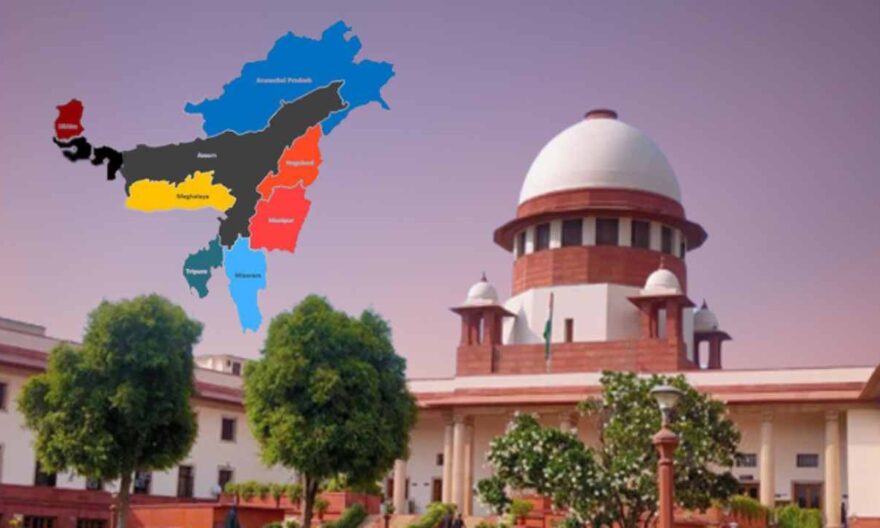
The Central Government on Wednesday informed the Supreme Court its steadfast commitment to preserving the special provisions of the Constitution pertaining to the North Eastern states of India. It also disapproved of any endeavors to ‘generate such apprehensions’.
Representing the Centre, Solicitor General (SG) Tushar Mehta made this assertion before a constitution bench of Chief Justice DY Chandrachud, Justices Surya Kant, Sanjiv Khanna, BR Gavai, and Surya Kant.
Advocate Manish Tewari expressed concerns about the possibility of the special provisions related to the North Eastern states being eliminated similarly to the abrogation of Article 370.
Tewari, a Congress leader and Lok Sabha MP, was representing former Arunachal Pradesh MLA Padi Richo, who had filed an intervention application in a series of petitions challenging the abrogation of Article 370.
Intervening in Tewari’s argument, the Solicitor General stated, “I have instructions to say this. This may be some kind of potential mischief. There is no apprehension and there is no need to create apprehensions.”
He further added, “We must understand the difference between temporary and permanent provisions. The central government has no intention to touch any special provisions of the Constitution related to North Eastern and other regions. Tewari said like Article 370 for the erstwhile state of Jammu and Kashmir, the sixth schedule of the Constitution envisages special provisions for North Eastern states. “Even a slight apprehension in the periphery of India can have serious implications. This court is dealing with one such situation in Manipur.”
Advocate Tewari clarified that he was not specifically addressing the actions of the current central government but was focusing on the broader issue at hand.
The bench, questioned the relevance of dealing with a petition that relies on anticipations and apprehensions.
“This is a constitution bench, and we are specifically dealing with Article 370. We shouldn’t expand the scope of the matter based on anticipations and apprehensions,” the bench stated.
“When, as a constitutional principle, the solicitor general has informed us that the government has no such intention, why should we apprehend something at all? We should not enter this territory at all. Let’s not focus on North East like this. The apprehensions have been allayed by the statement of the central government,” the CJI remarked.
In the court’s order, it noted that the intervention application highlighted that aside from the provisions within Part XXI of the Constitution relating to Jammu and Kashmir, distinct special provisions govern the North Eastern regions.
“Hence it is submitted that the interpretation by the court in Article 370 would impact other provisions. Solicitor General has submitted on specific instructions that the Union Government has no intention to affect or touch any of the special provisions applicable to North East regions or any other part of India,” the order stated.
The bench clarified that the ongoing matter pertained solely to Article 370 and found no common interest between the intervention application and the case under consideration.
The Court further emphasized, “In any event, the solicitor general’s statement on behalf of the Union of India, allays any apprehensions in this regard. The IA stands disposed of.”




